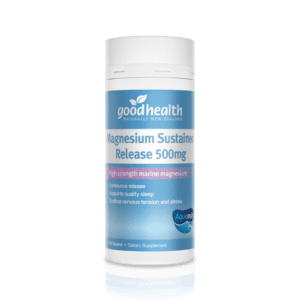
Magnesium is an important mineral needed by every organ in the body (especially the heart, muscles, and kidneys) but research is showing that magnesium may also support lung health. There has been significant research to tie low levels of magnesium to increased symptoms as well as a higher risk of dysfunction. Studies have shown that upping magnesium levels can be extremely beneficial, supporting the lungs’ ability to move air in and out. The body requires higher levels of magnesium to support symptoms.
Food sources of magnesium
Although there are high levels of magnesium in nuts, whole grains, and green leafy vegetables, it is very difficult for our digestion to extract it from plant sources, as the magnesium and other minerals are bound tightly to things like phytic acid. Fruits like bananas, avocados, dates, raisins, berries, pineapples, and papayas are the best plant food sources, but the bioavailability is not perfect. Of the highly bioavailable, animal food sources, dairy products, if tolerated are great – try to source raw and unprocessed milk from a farm so that you can make your own. Animal meats and sea food, especially fatty fish and shellfish, have good amounts. Bone broth is a good source if it is cooked for at least 24 hours with apple cider vinegar added and coconut water contains a good amount of magnesium.
Magnesium insufficiency
Certain health conditions can also lower magnesium levels as well as excessive sweating, loose stools, and prolonged stress. High consumption of coffee, soda, refined salt, sugar, and alcohol can also lower magnesium levels. Sugar, especially, demands a high turnover of magnesium in order to process it. Typical symptoms of magnesium deficiency levels are varied but can include worry, restless muscles, irritability, palpitations, blood flow issues, tense and weak muscles, breathing issues, and poor sleep habits.
Here’s what magnesium can do:
Calcium and magnesium work in concert in many areas. They must be in balance to support relaxed breathing. Your body requires adequate levels of magnesium to utilise vitamin D properly. Vitamin D is essential to support lung and immune health. Magnesium can also support a healthy immune response in the case of environmental triggers. Magnesium is not the only consideration when lungs require support – there may be food sensitivities or metabolic issues, certain nutrients may be insufficient in the diet, stress plays a massive role, and environment is crucial – but it is a big part of it.
Which supplemental Magnesium might help?

Good Health Magnesium Sustained Release is a unique high strength 500mg elemental marine magnesium product, specifically designed to slowly release magnesium in your body over 8 hours, allowing your body to properly absorb and utilise magnesium as it needs it, without any negative digestive effects.
TAPSPP1478

